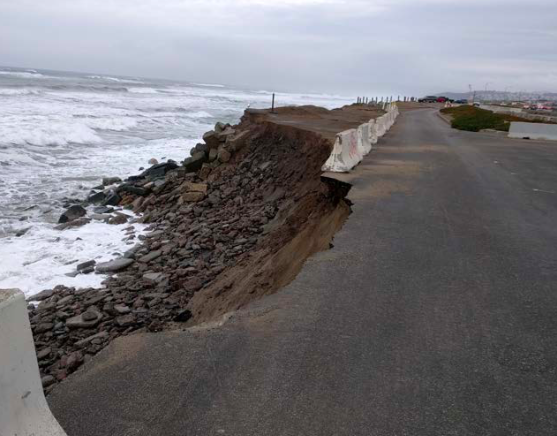The fall San Francisco ballot is starting to shape up, and it’s going to be full of ambitious measures, starting with a tax on vacant apartments. The supporters of the measure have turned in what appears to be far more than the required signatures, and they’ve told me that getting people to sign was easy: Nobody likes the idea of landlords holding apartments off the market during a housing shortage.
The city’s Budget and Legislative Analyst reported this spring that more than 40,000 rental units—about ten percent of the city’s housing stock—are vacant.

That’s half the amount of housing that the state wants to see built in San Francisco in the next few years and it’s a lot more housing that all the upzoning and streamlining that the Yimbs want will likely produce.
Imagine what would happen if even half of those vacant apartments came onto the rental market. At a time when a lot of young, high-income people are fleeing San Francisco because they can work remotely from someplace else, we might actually see prices come down.
Remember: This is existing housing, not new housing; the owners already paid for it. It’s sitting empty because, in some cases, the owners just want to hold it as an investment, or because it’s a pied a terre for someone very rich, or the landlord thinks maybe rents will go up in the future.
At a certain point, it’s going to be more practical to rent the place out than to pay an escalating tax. And if the very rich and the speculators want to keep the places vacant, then the money the measure would raise can pay for more affordable housing.
I wonder who is going to oppose this, and what kind of arguments they’ll make. (And I wonder how vigorously the Yimby groups will campaign for it.)
Then there’s Golden Gate Park and the Great Highway.
The Great Highway was closed during the height of the Covid pandemic to provide more outdoor space, and it’s still closed to cars on weekends. Some want to keep that closure, or even close it to cars every day. (I’m not sure how long cars will be able to continue using that road, since rising sea levels are going to threaten it fairly soon, particularly the area between Sloat and Skyline.)
But people who live near the highway say that people are still driving north and south; they’re just using neighborhood streets, adding to congestion.
And when the supes closed JFK Drive in Golden Gate Park to cars, which is immensely popular to bikers, skaters, and people who live near the park, some say that move was discriminates against people from the Southeast part of the city and people with mobility issues.
Both sides are organized, have resources, and are pretty dug in. There is no easy compromise.
So this will go to the voters. One measure, sponsored by former police captain Richard Corriea and disability-rights activist Howard Chabner, would reopen the Great Highway and limit JFK closures to Sundays, holidays, and Saturday during the summer months. Another, by Sups. Hillary Ronen, Myrna Melgar, Rafael Mandelman, and Matt Dorsey, would affirm the JFK closures.
If that one gets more votes than the other, then JFK Drive would remain closed to cars.
The campaigns will be heated. Among other things, opponents of re-opening the Great Highway point out that the city plans to close the Great Highway Extension in 2023 anyway as part of a climate-resilience plan.
At the same time, and somewhat related, Mayor London Breed wants to dissolve the authority that oversees the underground garage in Golden Gate Park and turn the property over the Rec-Park—with the express provision that the city can set parking rates.
One of the complaints about the road closures is that people who need to drive to the park have to pay exorbitant rates, like $34 a day— to park in that garage. If the city can subsidize the prices for some folks, like people with mobility issues and people from some parts of the city, the road closure might not be as big a deal.
The mayor also wants to substantially modify and weaken the rules on behested payments—donations to charities made at the request of elected officials or department heads—that the supes have passed and were approved on the June ballot. Because the mayor can put any ordinance in front of the voters with just a signature, that will also be in front of the November electorate.
The supes and the Yimbys, as we have reported, have competing affordable housing measures headed for the ballot.
And there’s a proposal to tax e-commerce giants to fund a guaranteed income program for low-income residents and support for small businesses in San Francisco. Polling suggests that’s very popular; history suggests that big business will spend money to oppose it.
And there’s more. The Rules Committee is meeting Wednesday/6 to consider, finalize, and send to the full board a series of ballot measures including a measure that could shift the mayor’s race to presidential election years, one that would allow the city to forfeit pensions for public employees convicted of serious crimes, and a student-success fund that’s kind of a set-aside.
And, of course, all of the even-numbered supervisor districts are on the ballot. So far, nobody knows what will happen in D2 if the mayor appoints Catherine Stefani as the next DA. Sup. Gordon Mar has a tough re-election in D4. There’s a highly contentious race in D6. So far, nobody serious is challenging Sup. Rafael Mandelman in D8 or Sup. Shamann Walton in D10.
But the outcome of D4 and D6 could have major implications for the balanced of power on the board.
More to come on all of this as the situation develops.






